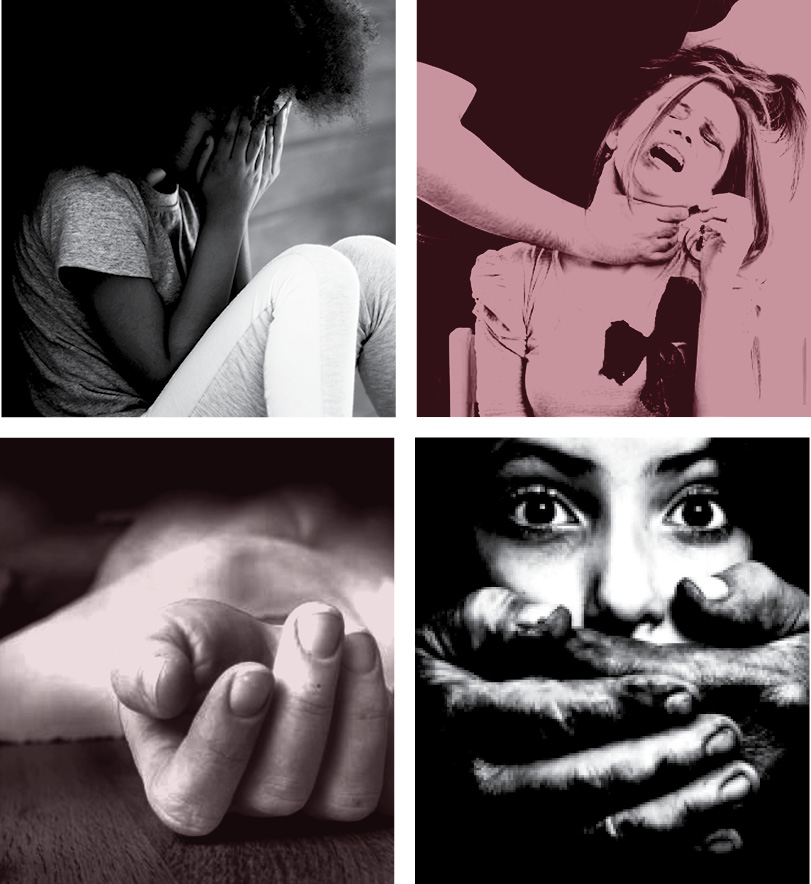President Cyril Ramaphosa has read the riot act to abusive South African men, who harm women and children, saying the brutal attacks must come to an end G ender-based violence (GBV) has increased in the country amid the coronavirus (COVID-19) pandemic, which is affecting large parts of the world. This, the President said, means the country is waging a war on two pandemics.
ender-based violence (GBV) has increased in the country amid the coronavirus (COVID-19) pandemic, which is affecting large parts of the world. This, the President said, means the country is waging a war on two pandemics.
Addressing South Africans recently, President Ramaphosa expressed deep-felt regret at the recent wave of fatal attacks on women of all ages.
“As a man, as a husband and as a father, I am appalled at what is no less than a war being waged against the women and children of our country. At a time when the pandemic has left us all feeling vulnerable and uncertain, violence is being unleashed on women and children with a brutality that defies comprehension.
“These rapists and killers walk among us. They are in our communities.”
The perpetrators, the President said, are fathers, brothers, sons and friends. “[These are] violent men with utterly no regard for the sanctity of human life.”
21 women and children murdered
Over the past few weeks, 21 women and children have been murdered.
“Their killers thought they could silence them but we will not forget them, and we will speak for them where they cannot,” the President said, calling the victims by name.
They include Tshegofatso Pule, Naledi Phangindawo, Nompumelelo Tshaka, Nomfazi Gabada, Nwabisa Mgwandela, Altecia Kortjie and Lindelwa Peni - all young women who were killed by men.
“We will speak for the 89-year-old grandmother, who was killed in an old age home in Queenstown; the 79-year-old grandmother, who was killed in Brakpan and the elderly woman, who was raped in KwaSwayimane in KwaZulu-Natal.”
The President thanked the police for arresting almost all of the alleged perpetrators.
National Strategic Plan
In 2019, President Ramaphosa announced a R1.6 million Emergency Response Plan to combat gender-based violence and femicide. Government now has a National Strategic Plan to guide the country’s national effort against GBV.
During the lockdown period, government ensured that survivors of gender-based violence have access to support and services, including the GBV hotline, shelters and centres providing support to victims of sexual violence.
Since December last year, 10 government-owned buildings have been handed over to the Department of Social Development to be used as shelters, addressing one of the biggest challenges facing survivors who want to leave abusive relationships.
“Over the last 18 months, we have made demonstrable progress in broadening access to support for survivors,” said the President.
During this period, 13 regional courts were upgraded into sexual offences courts. Over 7 000 evidence collection kits have been distributed regularly to police stations across the country. Additionally, 1 000 survivor-friendly rooms at police stations have been made available.
“Many police, prosecutors, magistrates and policymakers have undergone sensitivity and awareness training, and over 3 000 government employees, who work with children and mentally disabled persons, have been checked against the National Register of Sex Offenders,” President Ramaphosa said.
The President said the country’s courts have been firm in dealing with cases of GBV, even during the lockdown period, handing down life sentences to perpetrators.
Alcohol as a contributor
According to the police, violent crime – especially murder and attempted murder – has increased dramatically since Alert Level 3 took effect on 1 June.
“We need to ask some very difficult questions of ourselves as a society. We need to examine the effect of alcohol abuse not only on levels of violence, but also on road accidents and reckless behaviour,” said President Ramaphosa.
He said if alcohol use and abuse is contributing to these crimes, then it must be addressed with urgency.
“We need to draw lessons from this lockdown and decide how we can protect our society from the abuse of alcohol. Certainly, we need to provide greater support to people with drinking problems, including through rehabilitation and treatment.”
The consequence of being silent
The President said if the country is serious about ending these crimes, people cannot remain silent any longer.
“These perpetrators are known to us and our communities. By looking away, by discouraging victims from laying charges, by shaming women for their lifestyle choices or their style of dress, we become complicit in these crimes.”
He called on South Africans to consider the consequence of their silence. – SAnews.gov.za

 Facebook
Facebook Twitter
Twitter WhatsApp
WhatsApp